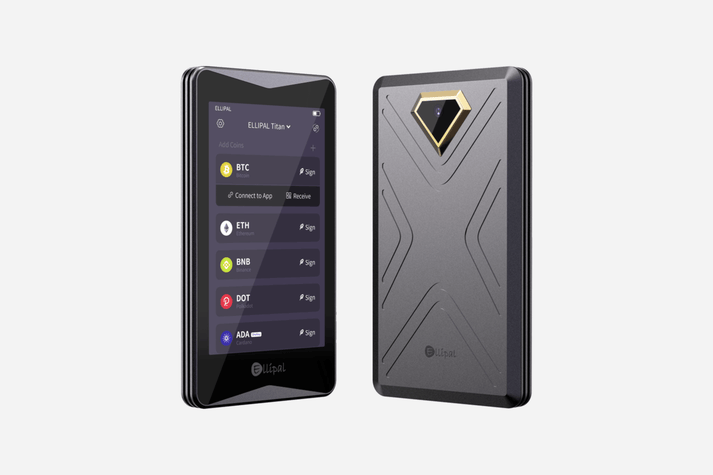Unlocking the Secrets: Choosing the Perfect Cold Wallet for Your Crypto Journey!
In the ever-evolving world of cryptocurrencies, where the digital landscape is rife with opportunities and risks, securing your assets becomes paramount. Cold wallets, a form of cryptocurrency storage that isn’t connected to the internet, offer a fortress-like security for your digital wealth. As more individuals and businesses embrace cryptocurrencies, the demand for safe storage solutions has surged. This article aims to delve into the various types of cold wallets available on the market today, comparing their features and benefits to help you make an informed purchasing decision.

Understanding Cold Wallets
Cold wallets are essentially offline storage solutions designed to keep your cryptocurrencies safe from online threats. Unlike hot wallets, which are connected to the internet and are susceptible to hacks and malware, cold wallets store your private keys in a secure, offline environment. This makes them an ideal choice for long-term investors or anyone looking to safeguard their assets from cyberattacks. The primary function of cold wallets is to provide a secure means of storing digital currencies, ensuring that only you have access to your funds. By keeping your private keys offline, you significantly reduce the risk of theft, making cold wallets an essential tool for anyone serious about cryptocurrency investment.
Types of Cold Wallets
When it comes to cold wallets, there are several types to consider, each with its own advantages and disadvantages. The most commonly used forms include hardware wallets, paper wallets, and USB drives. Hardware wallets are physical devices specifically designed to store cryptocurrency securely, whereas paper wallets are printed documents that contain your private keys. USB drives can also be used for cold storage, offering a versatile option for those who want to keep their assets offline. Understanding the pros and cons of each type is crucial for selecting the best cold wallet for your needs.
Hardware Wallets
Hardware wallets are often regarded as the gold standard in cold storage solutions. These devices offer a high level of security through encryption and are designed to handle multiple cryptocurrencies. They come equipped with features such as PIN protection and recovery seed phrases, which enhance their usability and security. For instance, a friend of mine recently invested in a hardware wallet, and he was impressed by how easy it was to set up and use. The physical device provides peace of mind, knowing his private keys are stored securely away from online threats.
Paper Wallets
Paper wallets are a more traditional method of storing cryptocurrencies that involve writing down your private keys and public addresses on a piece of paper. While they can be highly secure if created correctly, there are significant risks involved, such as loss, damage, or theft of the paper itself. Creating a paper wallet requires careful attention to detail, as any mistake can lead to permanent loss of your funds. A friend of mine once created a paper wallet but accidentally spilled coffee on it, leading to a stressful situation where he had to rely on his backup methods for recovery.
USB Drives
Using USB drives for cold storage is another option that many find practical. By simply storing your wallet files on an encrypted USB drive, you can keep your private keys offline. The setup process is relatively straightforward, and USB drives can be easily transported. However, it's essential to ensure that the USB drive is secure and free from malware before use. Additionally, maintaining backup copies of your wallet files in different locations can further enhance your security.
Key Considerations When Choosing a Cold Wallet
Selecting the right cold wallet involves careful consideration of various factors. Security features are paramount—look for wallets that offer strong encryption, two-factor authentication, and recovery options. Ease of use is also crucial, especially for those who may not be tech-savvy. Compatibility with different cryptocurrencies is another aspect to examine, ensuring your chosen wallet can accommodate all the assets you plan to store. Lastly, consider the wallet's recovery options, as losing access to your wallet can result in a total loss of funds. Taking the time to evaluate these factors will help you choose a cold wallet that aligns with your needs and enhances your overall security.
Making the Purchase Decision
Before making a purchase, it’s essential to conduct thorough research on the available cold wallets. Compare features, read user reviews, and assess the overall reputation of each product. Engaging with community forums can provide valuable insights into the experiences of other users. This due diligence will not only help you understand the strengths and weaknesses of each wallet but also empower you to make a decision that best suits your individual security needs.
Making an Informed Choice
In conclusion, choosing the right cold wallet is a critical step in safeguarding your cryptocurrency investments. By understanding the various types of cold wallets and evaluating your options based on security, usability, and compatibility, you can make an informed decision that protects your digital assets. Remember, the world of crypto is full of opportunities, but it is also fraught with risks. Prioritizing the security of your investments will empower you to navigate this exciting landscape with confidence.








